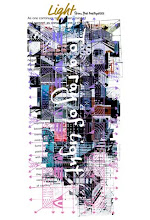In Prout Village, the municipality is committed to welfare for people with physical disabilities. For families with physically disabled members, residences are designed to provide a comfortable living environment. Multi-purpose facilities are designed with wheelchair mobility in mind, with flat floors, gentle slopes, and wide passageways and doors that take into account the width of wheelchairs. Each sign includes braille for those with visual impairments, and voice recognition technology that automatically subtitles sound on screen is used. Welfare equipment, such as electric wheelchairs, are all manufactured and provided using the municipality's 3D printers. The municipality also arranges for assistance dogs for people with physical disabilities, and provides sign language education.
In Japan, as of 2020, the population aged 65 and above accounted for 36.19 million, constituting 28.8% of the total population. It was estimated that there were about 6 million elderly individuals with dementia. By the year 2050, the population aged 65 and above is projected to reach 38.41 million, constituting 37.7% of the total population, signifying a significant increase in the aging population. At that time, about 1.4 individuals aged 20-64 will support each person aged 65 and above. The number of dementia patients is also expected to rise.
In a monetary-driven society, some households are compelled to resort to in-home care due to financial issues or the lack of available care facilities. Additionally, there are people who are busy with work and lack both the time and mental capacity to provide care.
In Prout Village, addressing this issue starts with the fact that all residents have ample free time, allowing for the capacity to provide care. Furthermore, as part of the municipality's structure, specialized residences are established within the community for residents diagnosed with dementia to live together. These residences feature boundaries resembling fences made from plants and trees in their gardens, allowing residents freedom of movement within the premises. Hazards like ponds or other dangers are omitted from these areas to prevent wandering and getting lost.
Residents are free to come and go from these specialized homes with family or friends, and access is available at any time. They spend their days at home with their families and can be accommodated in these specialized residences during the night.
![Prout Village [Free] / プラウトヴィレッジ [フリー閲覧] 持続可能な社会](https://blogger.googleusercontent.com/img/a/AVvXsEjbKPiHZzOAvZi3PXTyAKOi36I-VMLHr-kphQiE07m4wzeeGG3lIabgaEnXe0IIIC4nFXXEZwwaYeum0jHhzD-B7ULA_L5KblmhV0liCPnyQC_3BazKPsTQY-eNFCjuFSf6kqrRLjlo_Sws74oTJr3jKGPOq3kKANWvKkuZC23wRhoelj4w1WINgKF3a3QM=s428)





![إستراتيجيات وإجراءات مكافحة التنمر الإلكتروني[1]](https://blogger.googleusercontent.com/img/b/R29vZ2xl/AVvXsEhpa9q2E3P-FNy8kV4Y6SVGh8tEW7N8rRPJBRP__vVqAIEb5ozhgoSDn3KG75zeNfNeQFs_jD0zLZbU62f74hGJYBip6yU6B-noSWtiujU18VQW4sz3Evsj1dfmQ_pPVOweIqR9tS-KrJEXxMP1BOKehCBSh_Pe1refFQN6D5Ts1HSGybqzpADjQwiGkdJh/w72-h72-p-k-no-nu/laptop-3087585_640.jpg)
![إستراتيجيات وإجراءات مكافحة التنمر الإلكتروني[3]](https://blogger.googleusercontent.com/img/b/R29vZ2xl/AVvXsEhEiZ5EZNRzLPxT5s6ig1pDOvn5pZSF0AuwT11MvGo-9sxdF_APoxi72P7SG_rxMGXP1RgilQ1PesERfdS5oA_SLm7-TJrQuZ8xa1gxSRp1Zp4u-yUBg4Pk4znhhyphenhyphenloEWpc62UMwr-vabEWRNGD1uMvA7G-dfecm02TCD_7-EbpTDniQfbn9hKgDpupeSQD/w72-h72-p-k-no-nu/cms-265128_640.jpg)


0 Comments